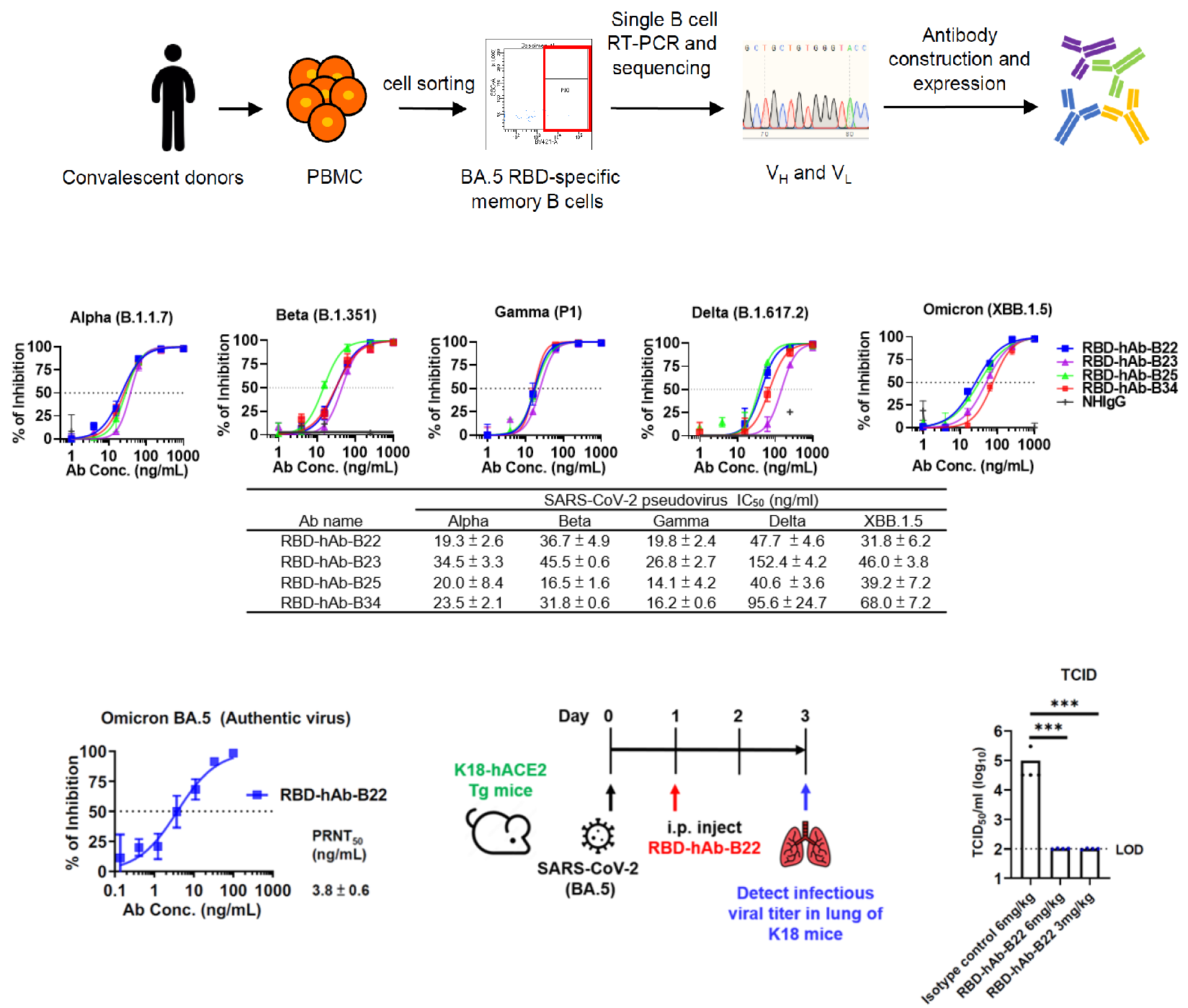Development of the potently and broadly neutralizing human antibodies against SARS-CoV-2 from Alpha to Omicron XBB.1.5
- Author:Hsiao-Ling Chiang, Kang-Hao Liang, Ruei-Min Lu, Ting-Wen Kuo, Yi‑Ling Lin & Han-Chung Wu
- Journal: Journal of Biomedical Science https://jbiomedsci.biomedcentral.com/articles/10.1186/s12929-023-00955-x
As the SARS-CoV-2 virus continues to evolve, many therapeutic antibody drugs have lost efficacy. For example, the only therapeutic antibody to retain good neutralizing activity against Omicron variants BA.2 and BA.5 was Eli-Lilly's Bebtelovimab. Meanwhile, no therapeutic antibodies with EUA (Emergency Use Authorization) have retained the ability to effectively neutralize the current widely circulating XBB strains. As such, an urgent need exists for the continual development of novel therapeutic antibodies to treat COVID-19. Under the leadership of Professor Han-Chung Wu, a Distinguished Research Fellow of the Institute of Cellular and Organismic Biology and the director of BioTReC in Academia Sinica, a research team used flow cytometry to sort single memory B cells from vaccinated individuals who had recovered from breakthrough COVID-19 infections. Then, the group performed single-cell RT-PCR on the sorted B cells to generate a set of human monoclonal antibodies that recognize the receptor-binding domain (RBD) of the SARS-CoV-2 spike protein. Sixteen antibodies with potent neutralization activities (IC50 < 20 ng/mL) against Omicron BA.5 were identified by this approach. Among these antibodies, four were confirmed by ELISA and pseudovirus-based assays to have strong binding and neutralizing activities toward all SARS-CoV-2 variants of concern (Alpha, Beta, Gamma, Delta and Omicron) as well as circulating subvariants (Omicron BA.5, BQ.1.1, and XBB.1.5). Notably, the RBD-hAb-B22 antibody showed remarkable therapeutic efficacy when tested in a mouse model of BA.5 infection. The findings from this research highlight how the human single B cell cloning platform can enable rapid identification of potent and broadly neutralizing human antibodies against new SARS-CoV-2 variants. Furthermore, this approach can potentially be used to quickly generate therapeutic antibodies to combat future emerging infectious diseases. The study was published in the Journal of Biomedical Science, with Dr. Hsiao-Ling Chiang as the lead author.
Paper link:
https://jbiomedsci.biomedcentral.com/articles/10.1186/s12929-023-00955-x


